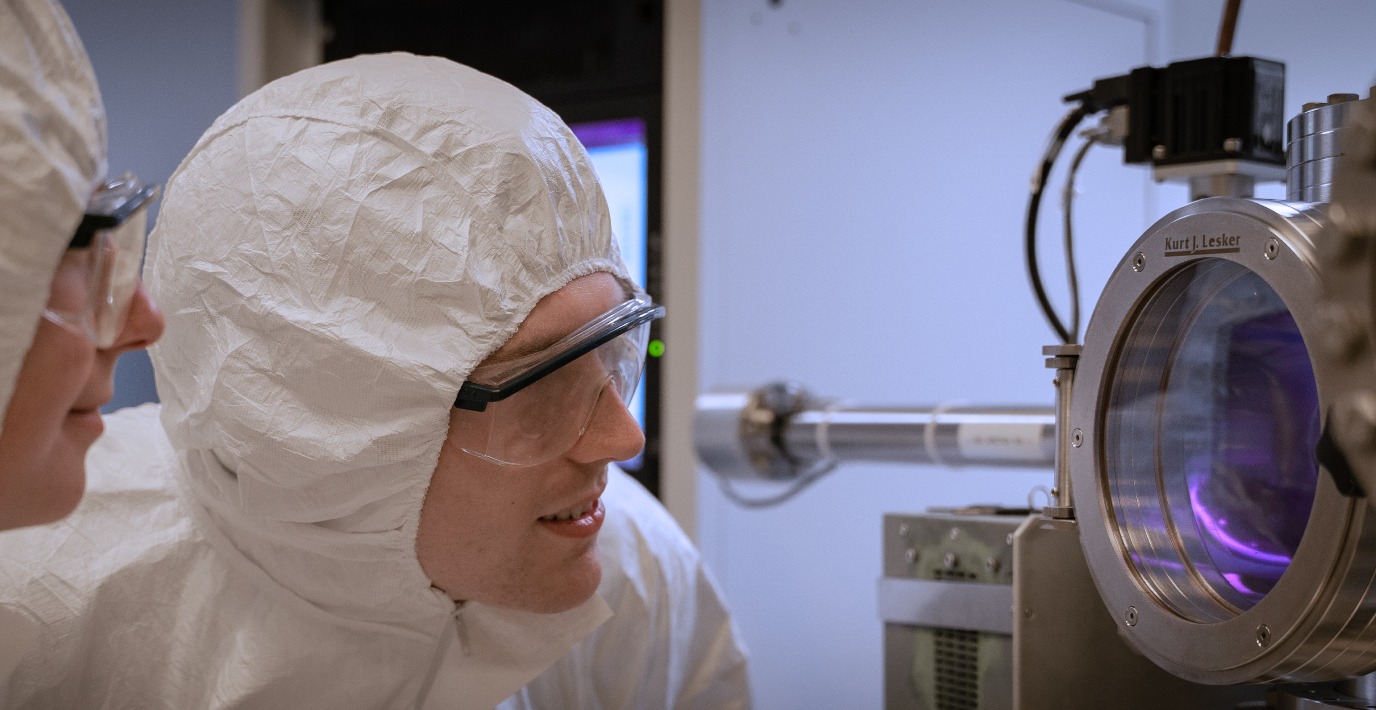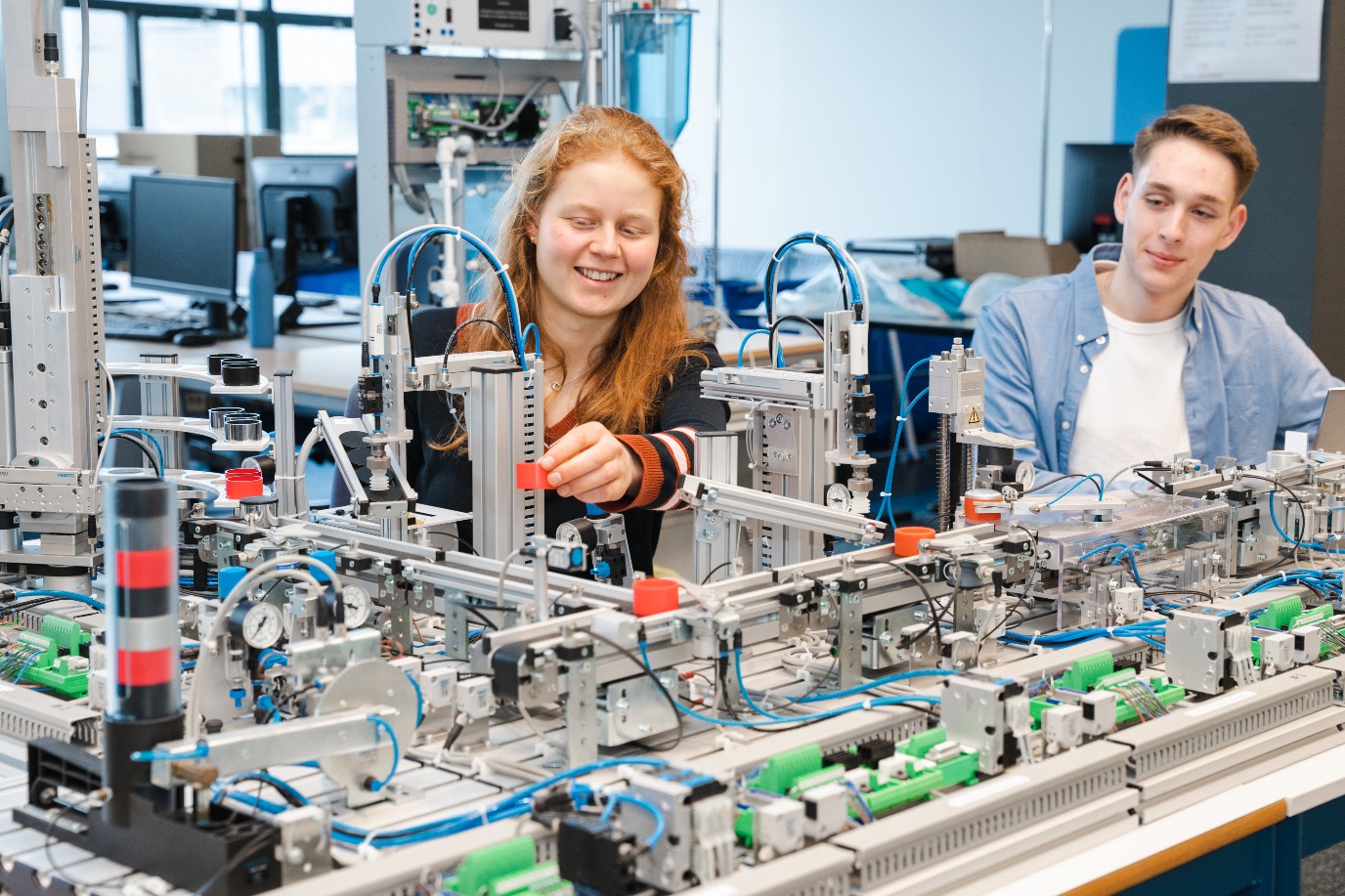Start EngD programmes Autonomous Systems and Sustainable Process Design
In September, the Engineering Doctorate (EngD) programmes Autonomous Systems and Sustainable Process Design will start at the University of Groningen (UG). These two-year post-master programmes focus on training engineers to bring innovative solutions for technical problems of both large industries and SMEs in the North of the Netherlands. The programmes are taught at the UG's Faculty of Science and Engineering.
The new EngD’s are part of the 4TU Stan Ackermans Institute, which is responsible for the coordination of EngD programmes across all Dutch technical universities. The programmes are accredited by the CCTO (Certificatie Commissie voor opleidingen tot Technologisch Ontwerper), part of The Royal Netherlands Society of Engineers (KIVI).

Learning and working at companies in the North
The EngD programme Autonomous Systems focuses on the design of technical solutions for challenges related to the automatisation of systems in the high-tech industry. The program Sustainable Process Design focuses on the design of technical solutions for challenges related to the sustainability of processes in the chemical industry. Both programmes consist of a combination of degree courses (at the UG or at an industrial partner) and an on-site design project to solve a specific company challenge. The EngD students (so called ‘trainees’) will work at chemical and high tech companies in the North of the Netherlands.
Programme director Autonomous Systems Paris Avgeriou: 'With the EngD programmes we practically bridge the gap between academia and industry. This allows the UG to have more societal impact by supporting innovation in both the high tech and chemical industries, boosting economic growth in the region. We are also able to supply industry with much-needed engineering talent, in essence limiting the brain drain to the randstad.'
How it works
Trainees joining the programme can be employed by the UG or be on the payroll of the companies that are contributing to the EngD programme. In the first case, the participating companies pay a consultancy fee to the University, while in the second they cover the tuition fee. Similar to a PhD trajectory, each EngD trainee joins a specific project, but for the case of an EngD they join a company project with the goal of solving a technical challenge in that company and provide a technological innovation.

Partners
For the EngD programme Autonomous Systems the UG collaborates with the Innovation Cluster Drachten and the European Digital Innovation Hub Northern Netherlands. The Sustainable Process Design programme is set up in close collaboration between the UG and the Sustainable Products & Chemicals Cluster Emmen.
Read more
| Last modified: | 05 July 2024 1.10 p.m. |
More news
-
03 April 2025
IMChip and MimeCure in top 10 of the national Academic Startup Competition
Prof. Tamalika Banerjee’s startup IMChip and Prof. Erik Frijlink and Dr. Luke van der Koog’s startup MimeCure have made it into the top 10 of the national Academic Startup Competition.
-
01 April 2025
NSC’s electoral reform plan may have unwanted consequences
The new voting system, proposed by minister Uitermark, could jeopardize the fundamental principle of proportional representation, says Davide Grossi, Professor of Collective Decision Making and Computation at the University of Groningen
-
01 April 2025
'Diversity leads to better science'
In addition to her biological research on ageing, Hannah Dugdale also studies disparities relating to diversity in science. Thanks to the latter, she is one of the two 2024 laureates of the Athena Award, an NWO prize for successful and inspiring...
